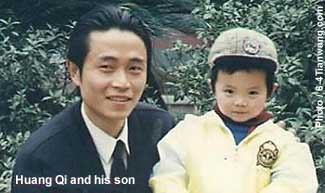New York, August 16, 2001—Jailed Internet publisher Huang Qi was tried Tuesday, August 14, on charges of subversion, according to CPJ sources in China and the United States.
The trial was held in secret in the Chengdu Intermediate Court in Sichuan Province. Family members were not allowed to attend and no verdict or sentencing date was released. In China, however, criminal cases brought to trial usually result in a guilty verdict.
Huang Qi was publisher of the Tianwang Web site, which featured articles about pro-democracy activism in China, the independence movement in the Xinjiang Uighur Autonomous Region, and the banned spiritual group Falun Gong. He was arrested on June 3, 2000, and later charged with subversion.
“Huang Qi’s prosecution violates China’s own Criminal Procedure Code as well as international human rights law,” said CPJ executive director Ann Cooper. “CPJ calls for his unconditional release, and urges the Chinese government to stop its efforts to stifle free expression on the Internet.”
The U.S.-based Internet news service Boxun News reported yesterday that Zeng Li, Huang’s wife, went to the court on August 14 but was prevented from entering. She took a picture of her husband as he entered the court, but her film was confiscated.
Huang’s trial was postponed several times this year, in an apparent effort to avoid international attention to human rights abuses during Beijing’s bid to host the 2008 Olympic Games. Meanwhile, the Tianwang site has been hosted by a U.S. server since April 2000 and remains accessible.
Huang is one of 14 people in China who have been arrested for publishing or distributing information on the Internet since 1998, according to CPJ research.
![]()
